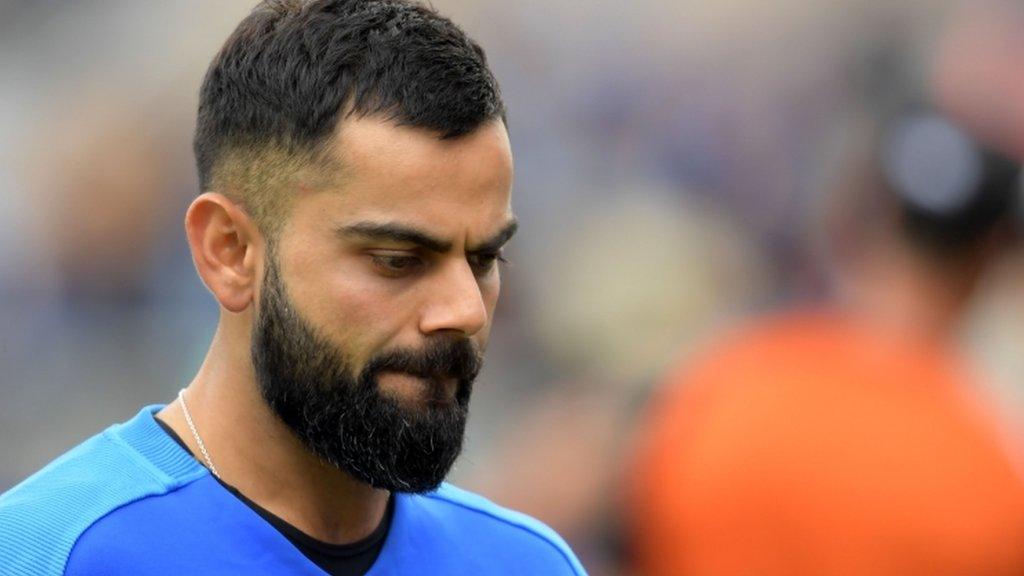World Cup defeat: India had the stars, New Zealand had the team
- Published
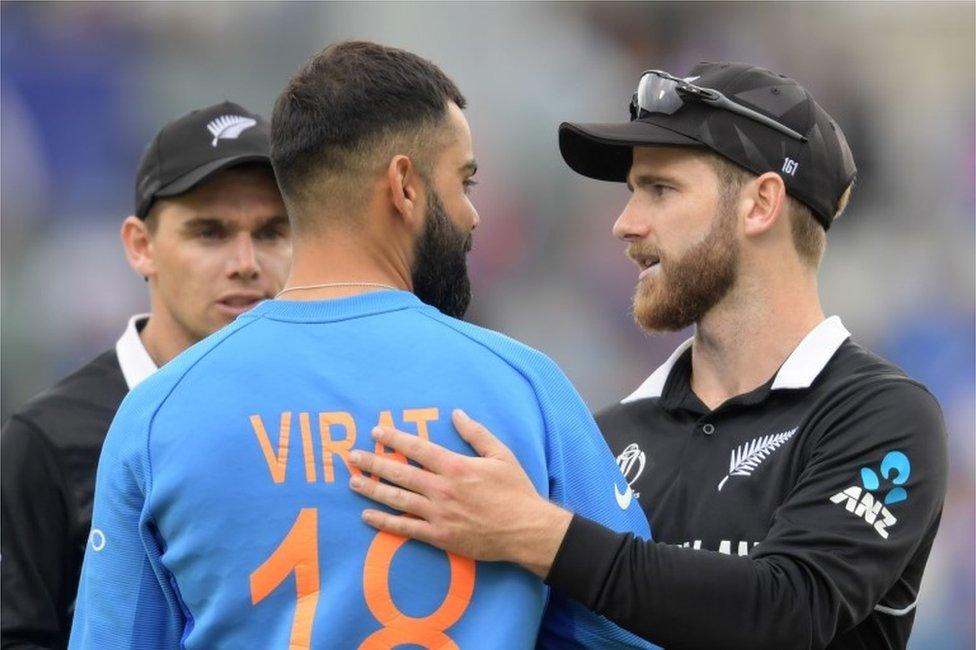
New Zealand captain Kane Williamson and India's captain Virat Kohli at the end of play
The population of New Zealand is around five million, less than half that of Bangalore, my home city in southern India.
Even if you include all the sheep in New Zealand - seven to a person - it is still below that of many Indian states. Rugby, not cricket is the top sport, attracting the money, the talent, and much of the attention.
India, in contrast, with a population of 1.3 billion, rule the cricket world. They have more players to choose from, enormous amounts of money, power and are the No. 1 one-day team.
So it was like a single David taking on half a dozen Goliaths when New Zealand beat India in the semi-final of the World Cup on Wednesday.
India had the stars, New Zealand had the team. India's backroom staff earn more than many corporate professionals, New Zealand don't have the funds for that kind of extravagance.
India had the best batsman in the world, the best bowler, and the man who had made five centuries in this tournament. New Zealand had Kane Williamson, captain and main batsman, who scored nearly a third of all their runs.
India had the largest number of travelling fans in England; New Zealand's commentators seemed to know their supporters in the crowd by name.
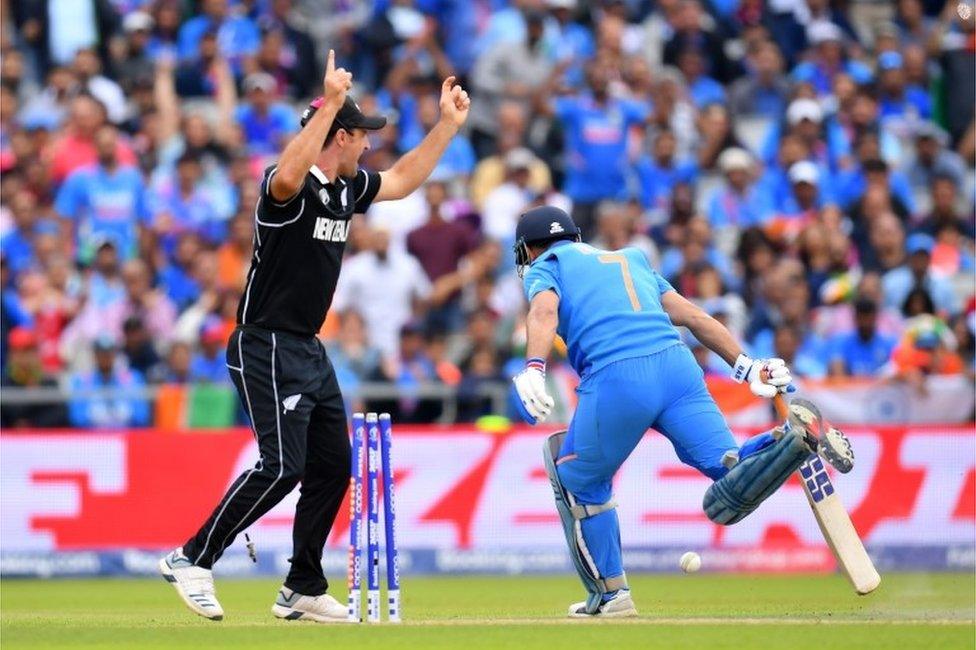
MS Dhoni's spectacular run out by Martin Guptill was a turning point in the game
There is something deliciously attractive about the underdogs surprising the potential champions, given that kind of disparity. It is what makes sport.
The post mortems will start in India. Perhaps heads will roll, and players retire.
Unintelligent
India didn't play badly, just unintelligently. Two terrific deliveries removed the two best batsman, Rohit Sharma (he had scored five centuries before this match) and Virat Kohli (the best in the world), and the match was effectively over in the first half a dozen overs.
Yet, India did well to stay in the game till the 48th over when Ravindra Jadeja finally succumbed. A largely defensive Mahendra Dhoni was brilliantly run out in the next - did he leave it until it was too late? - and that was that.
Dhoni made 32 (off 45 balls) in the 116-run partnership with Jadeja (77 off 59), but it involved 20 dot balls and the occasional Test-match style leave outside the off stump. It is doubtful if he could have carried India through when they needed 37 from the last three overs.
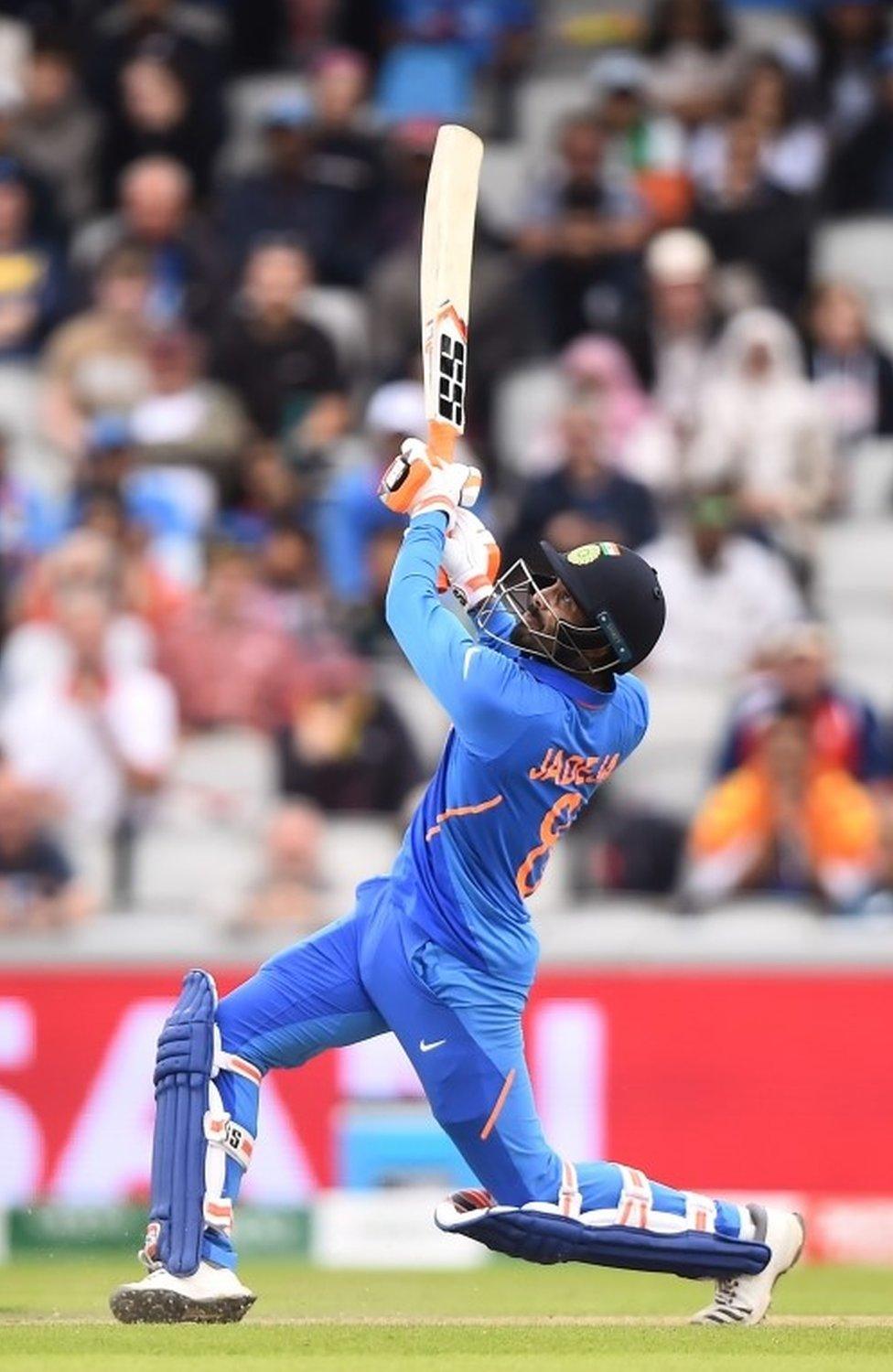
Ravindra Jadeja almost kept India's dreams alive
This was a match that New Zealand won, not one that India lost.
Williamson read the wicket well, and what had looked like unadventurous batting was actually the ideal approach on it. Still, 240 ought to have been within India's range. Fast bowlers Matt Henry and Trent Boult made sure it fell outside, with left arm spinner Mitch Santaner picking up the young Turks in the middle order completing the rout.
Teams that win World Cups grow through the course of the tournament. Somehow India didn't seem to.
Poor selection
They began with three batsman up front and three bowlers at the end who were all world class. They never managed to sort out their problem in the middle, at numbers 4,5,6. It was too much to ask three batsmen playing in their first World Cup to make up for the three at the top who had till then scored nearly two-thirds of India's runs.
That it was left to a man who had been ignored for long, Jadeja, to keep hopes alive, was a commentary on two important aspects of India's campaign.
Their poor team selection in the tournament, and before that, their inability to find the batsman for the crucial No. 4 slot. India had tried out 24 players in the 4-7 slots since the last World Cup. It is not lack of talent so much as a lack of judgement.
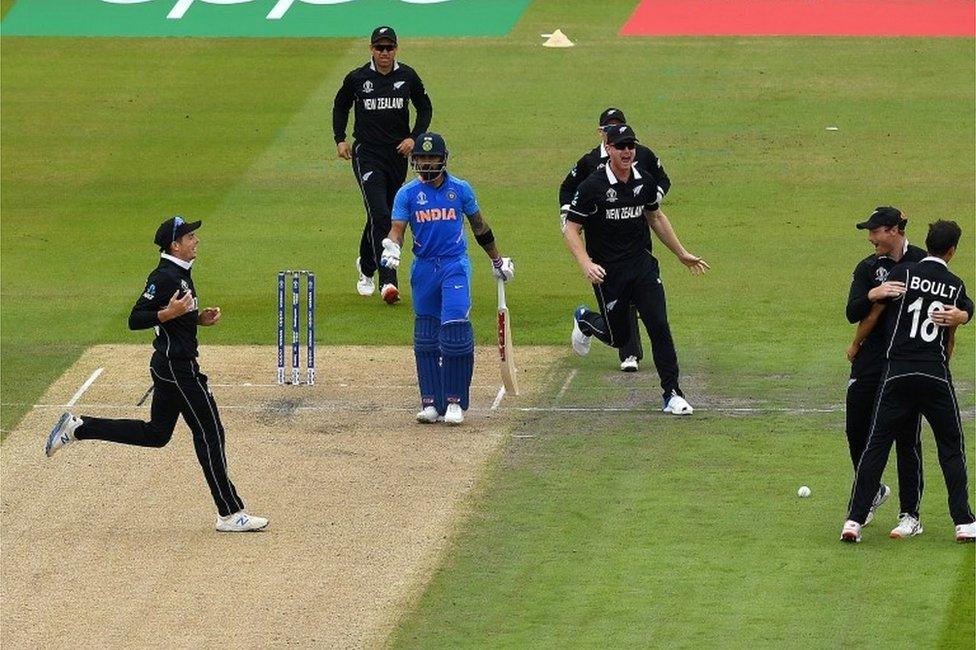
Virat Kohli flopped in the key game
Did the Indians take New Zealand lightly? The fans and the media including the jingoists cheering from the commentary boxes certainly did.
But what of the players? At the end of the first day when rain forced the game to go into the second, New Zealand were 211 for five, and looked out of it. That they made 28 in 23 balls the next day probably led India to believe that batting would be easier.
In the end, India paid the price for their soft under-belly in the middle order, their lack of imagination in selection (where was Jadeja all these days?), and an often illogical adherence to a course of action that wasn't always successful.
And when New Zealand posed the early questions, they had no answers.
Suresh Menon is Editor, Wisden India Almanack and Contributing Editor, The Hindu
- Attribution
- Published10 July 2019
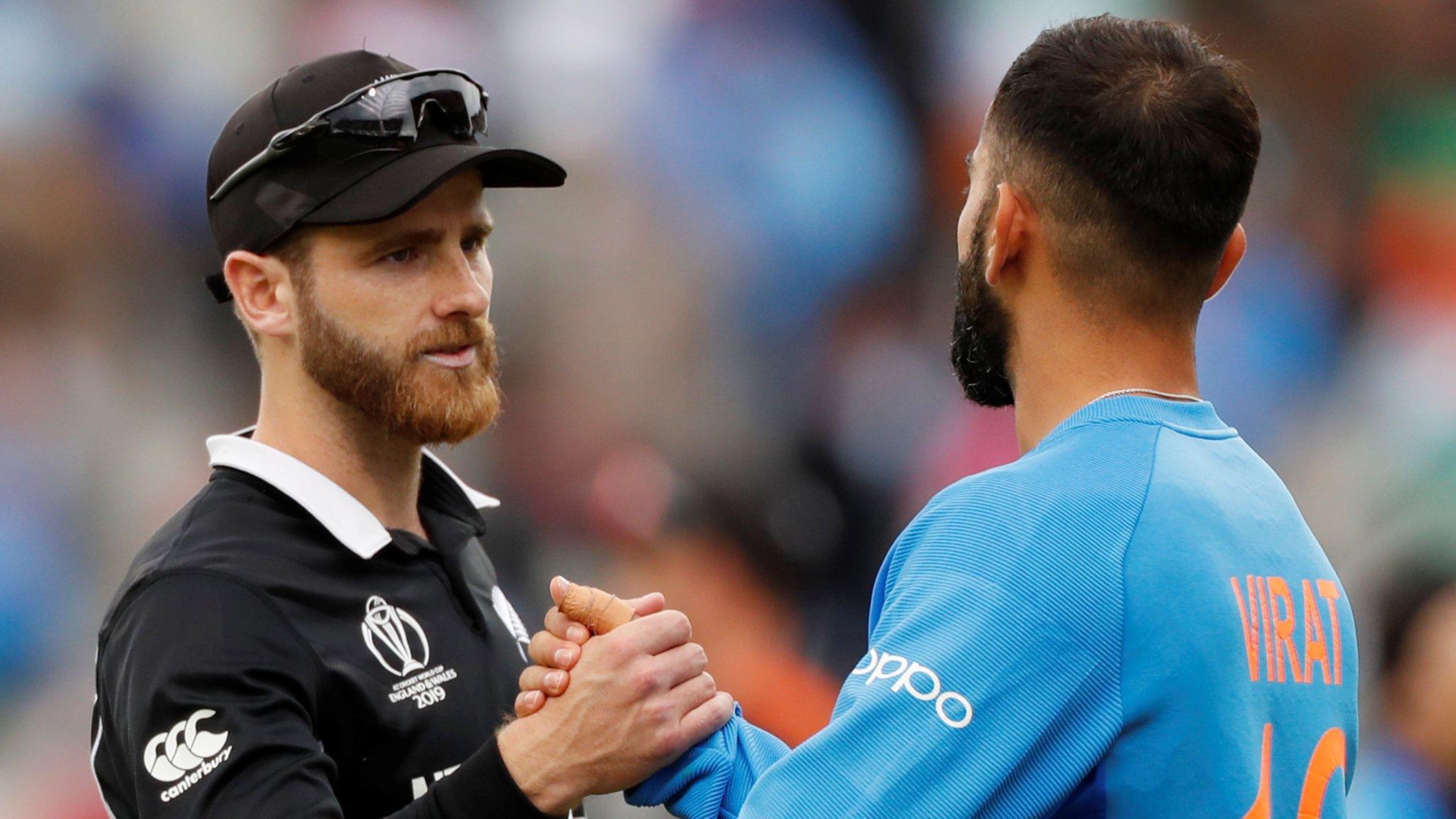
- Attribution
- Published10 July 2019
